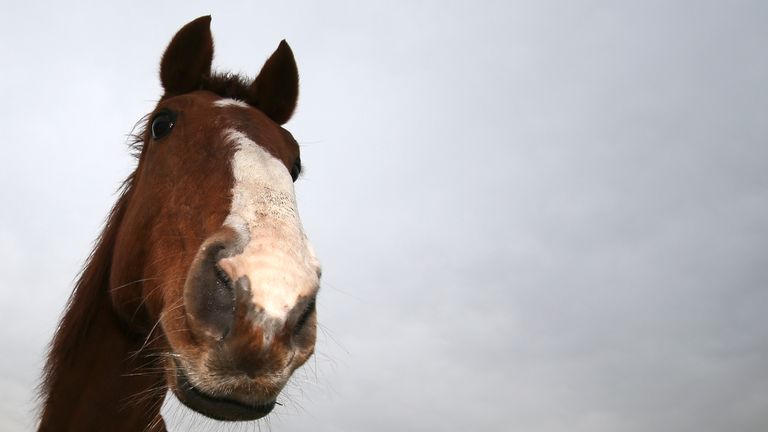Horses are much smarter than previously thought, researchers have claimed.
Their findings came during a study in which the animals performed better than expected in a complex reward-based game.
When denied treats for not following the rules of the game, researchers found the horses were able to instantly switch strategies to get more rewards.
The scientists from Nottingham Trent University (NTU) said this showed the animals have the ability to think and plan ahead – something previously considered to be beyond their capacity.
Dr Carrie Ijichi, a senior lecturer in equine science at NTU, said: “Horses are not natural geniuses, they are thought of as mediocre, but this study shows they’re not average and are, in fact, more cognitively advanced than we give them credit for.”
The study saw researchers set 20 horses a task consisting of three stages.
In the first stage, the animals touched a piece of card with their nose in order to get a treat.
But things became more complicated when a light was introduced and horses were only allowed a snack if they touched the card while the light was switched off.
The horses kept blindly touching the card, regardless of whether the light was on or off, and were rewarded for correct responses.
In the final stage of the game, a penalty was put in place where touching the card when the “stop” light was on resulted in a 10-second time-out.
But instead of indiscriminately touching the card, the horses were engaging with the rules – only making a move at the right time in order to receive their treat.
Louise Evans, a PhD candidate based in NTU’s School of Animal, Rural and Environmental Sciences, said: “Animals usually need several repetitions of a task to gradually acquire new knowledge, whereas our horses immediately improved when we introduced a cost for errors.
“This suggests that the horses knew all along what the rules of the game were.”
The findings were published in the journal Applied Animal Behaviour Science.









